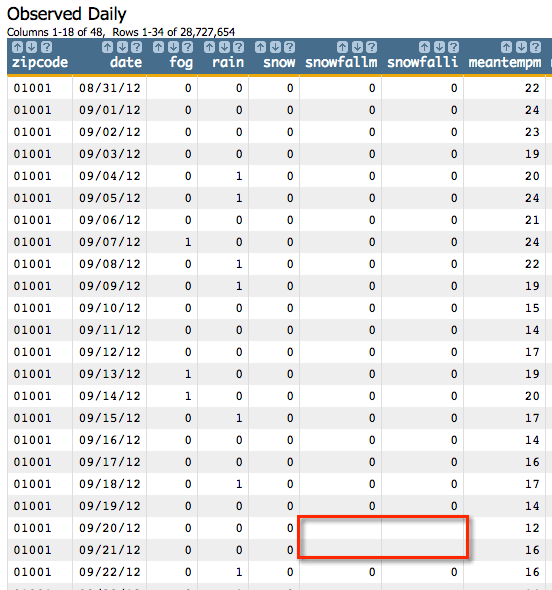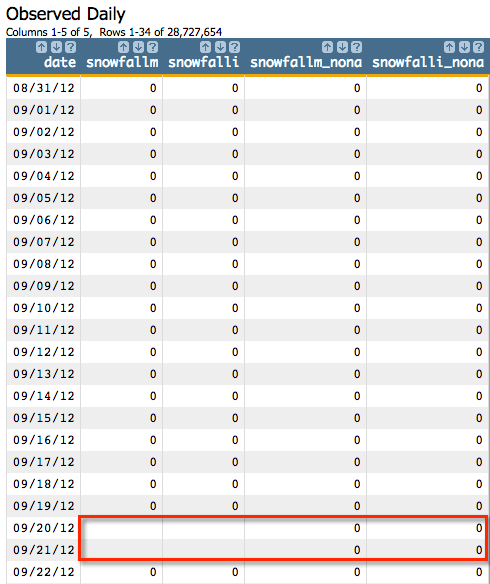ifnull(X;Y)
Returns a specified value when the value in a given column is N/A.
Syntax
ifnull(X;Y)Input
| Argument | Type | Description |
|---|---|---|
X |
any simple type | A column name |
| Y | any simple type | A scalar value or the name of a column |
Note:
X and Y must be the same type.Return Value
Returns Y if the value in column X is N/A. Otherwise,
returns the value in column X.
Sample Usage
X |
Y |
ifnull(X;Y) |
|---|---|---|
| NA | 1 | 1 |
| 1 | 2 | 1 |
| 999 | NA | 999 |
Example
Let's use the table pub.demo.weather.wunderground.observed_daily to
illustrate the use of ifnull(X;Y).
You can see that some of the values in the snowfallm and
snowfalli columns contain N/A values.

Let's say we want to change those N/A values to 0 for computational
purposes, but we want to keep all the other values the same. To do this, we can create a new
computed column that contains the desired results by using the following Macro Language
code:
<willbe name="snowfallm_nona" value="ifnull(snowfallm;0)"/>
<willbe name="snowfalli_nona" value="ifnull(snowfalli;0)"/>Then, just to make it easier to see the results, let's use
<colord> to
display the columns so that we can see the two original columns next to the two new columns
we just
created:<colord cols="date,snowfallm,snowfalli,snowfallm_nona,snowfalli_nona"/>This will give us the following:

You can see for those items in snowfallm and snowfalli
that were N/A, they now contain the value 0 in the
snowfallm_nona and snowfalli_nona columns,
respectively.
